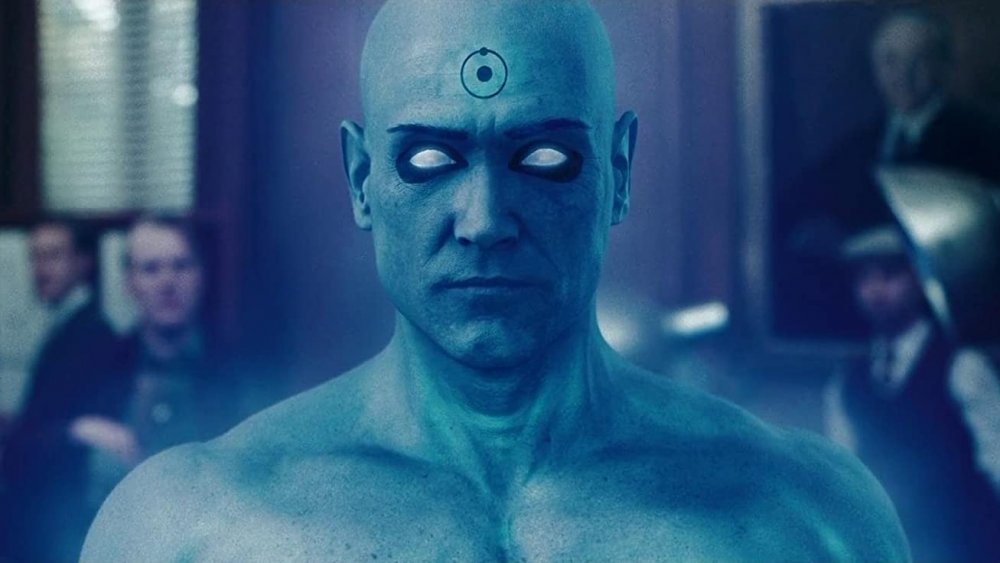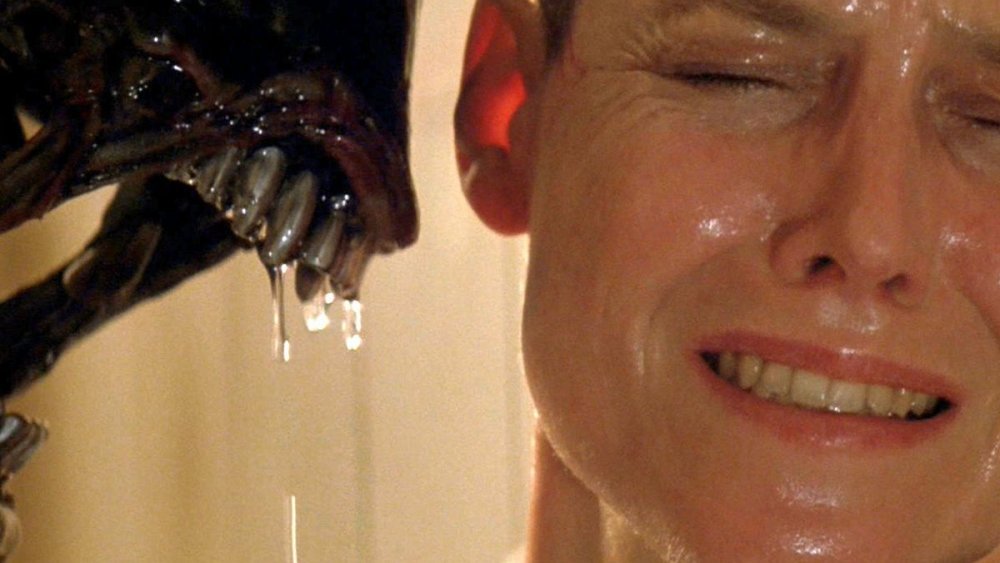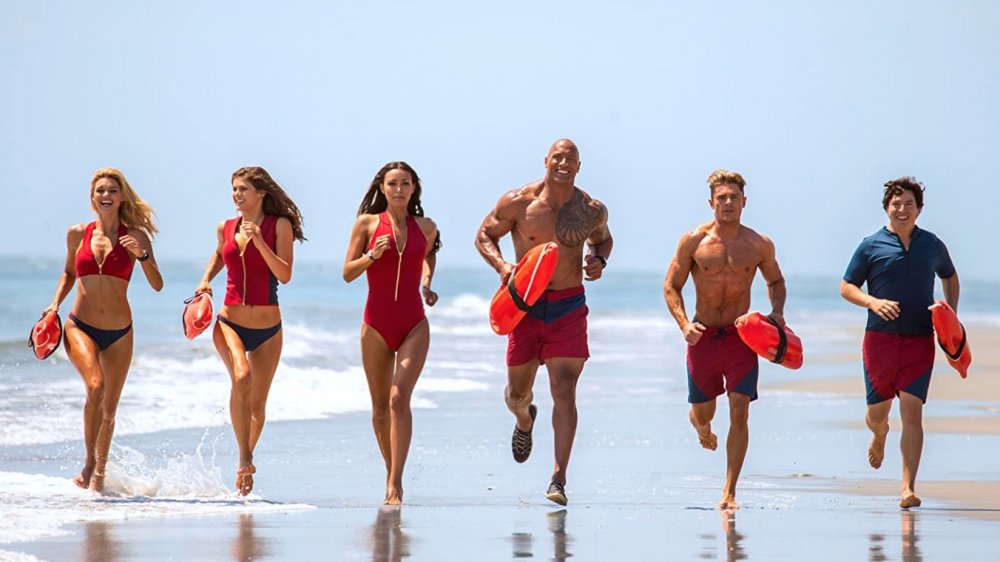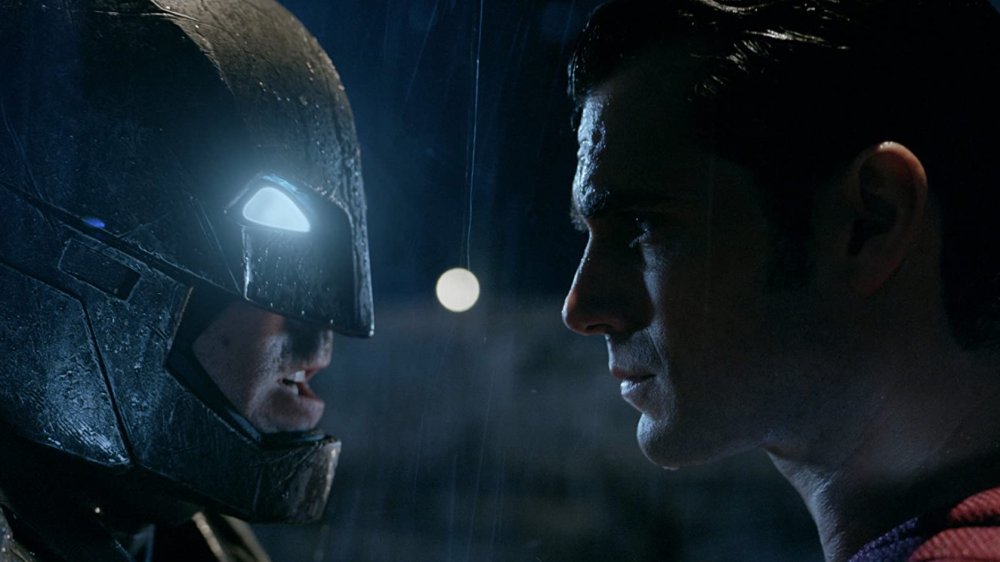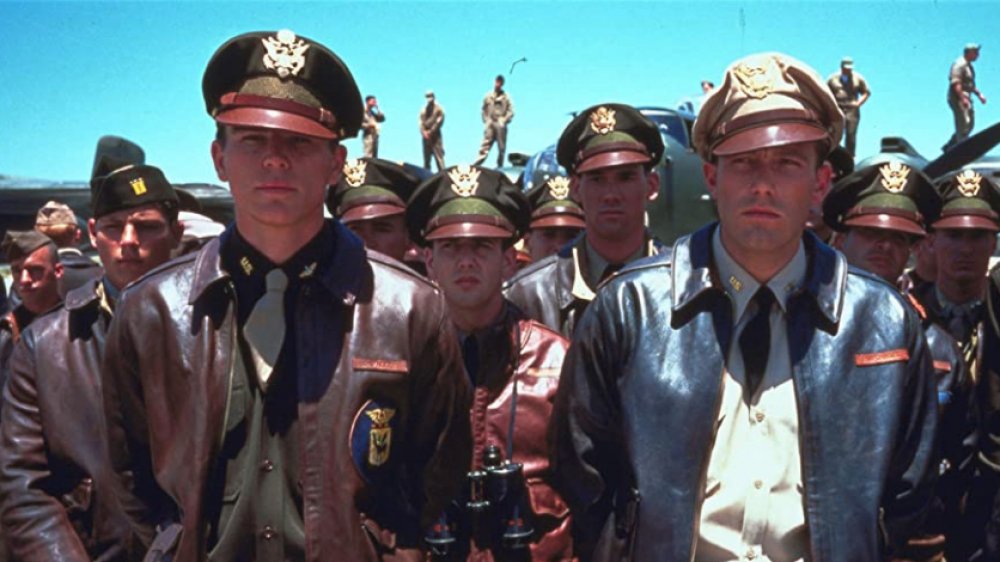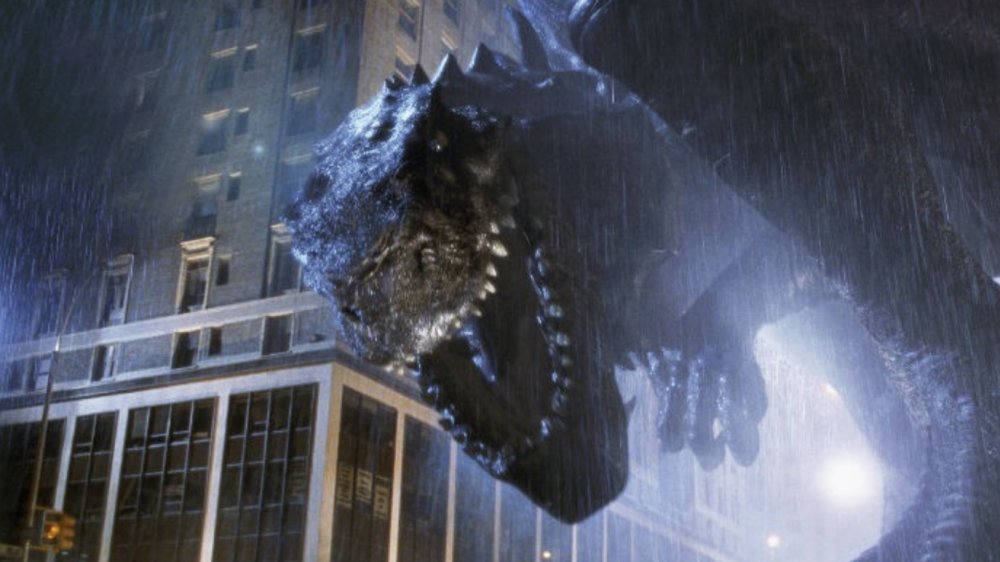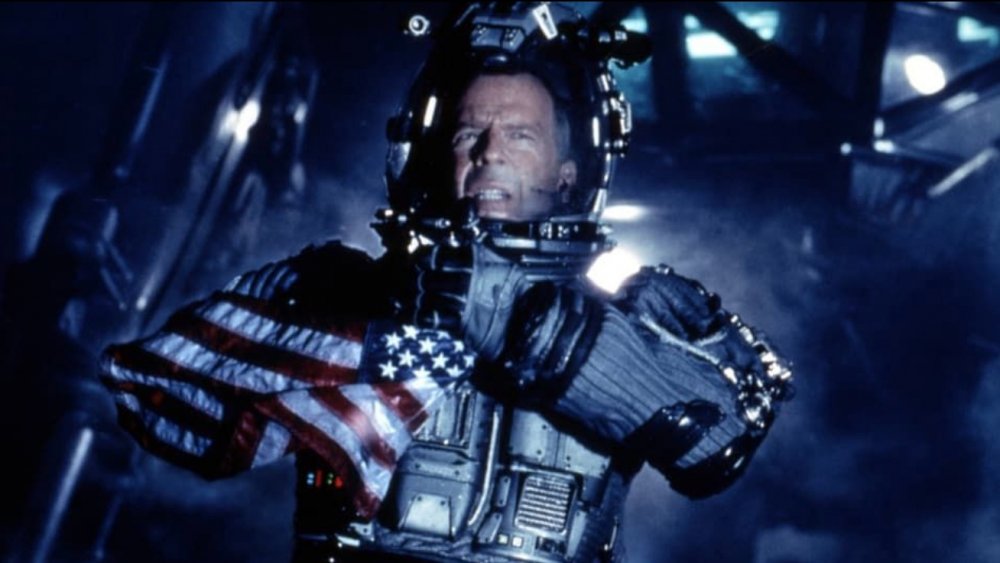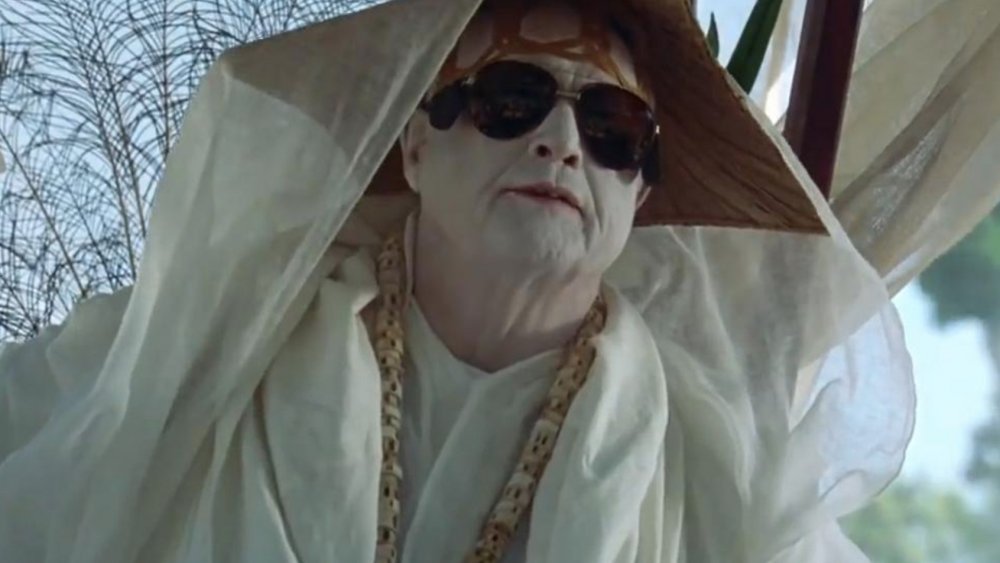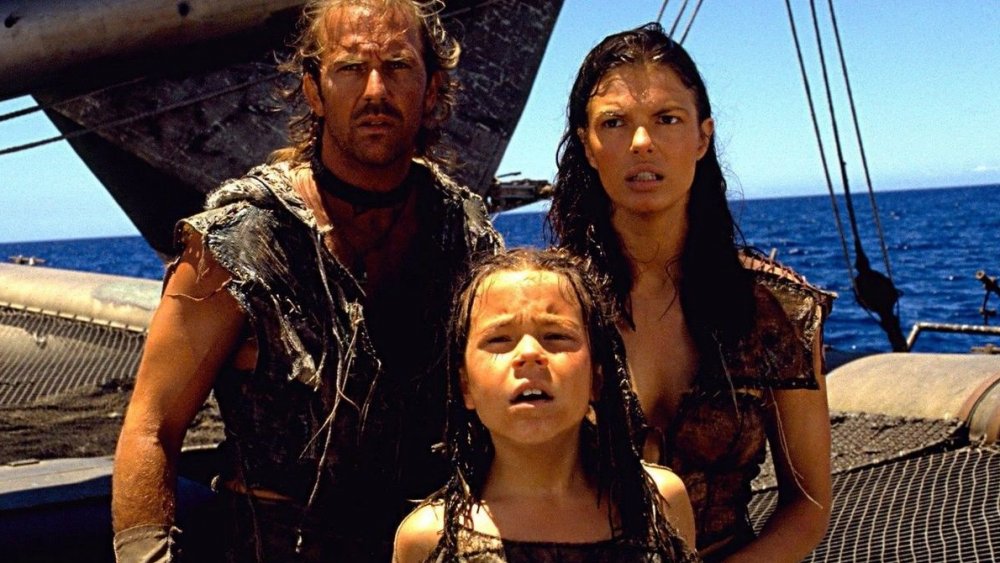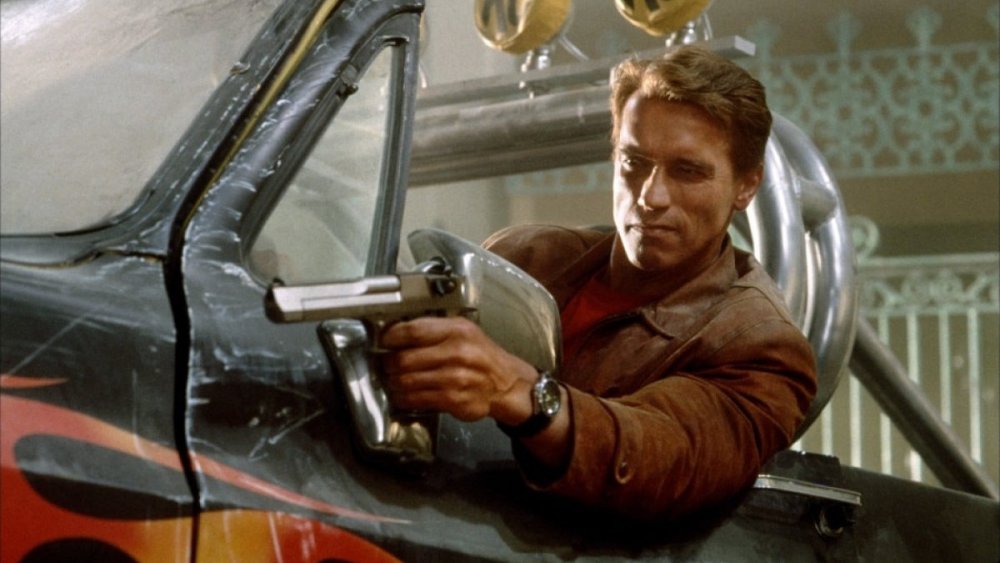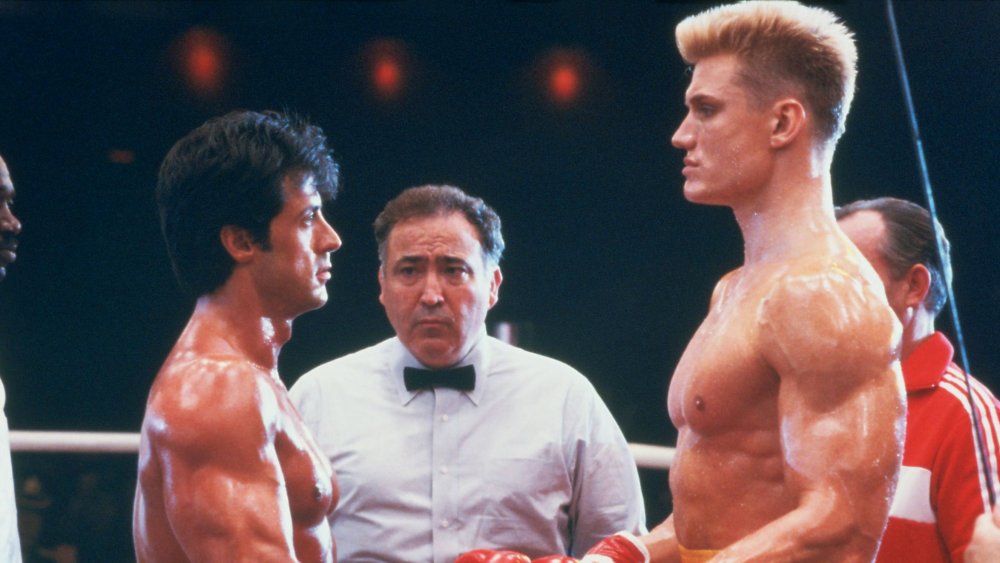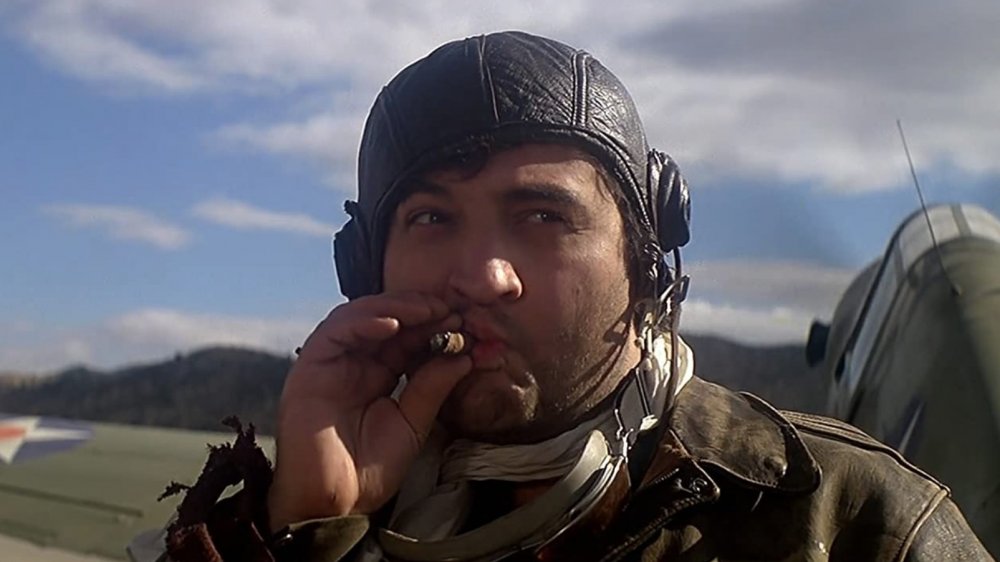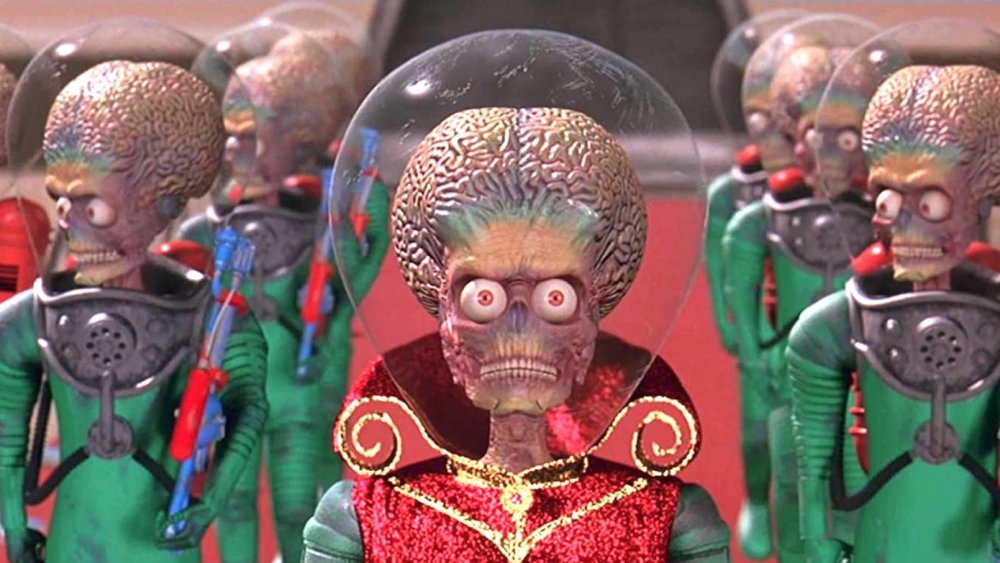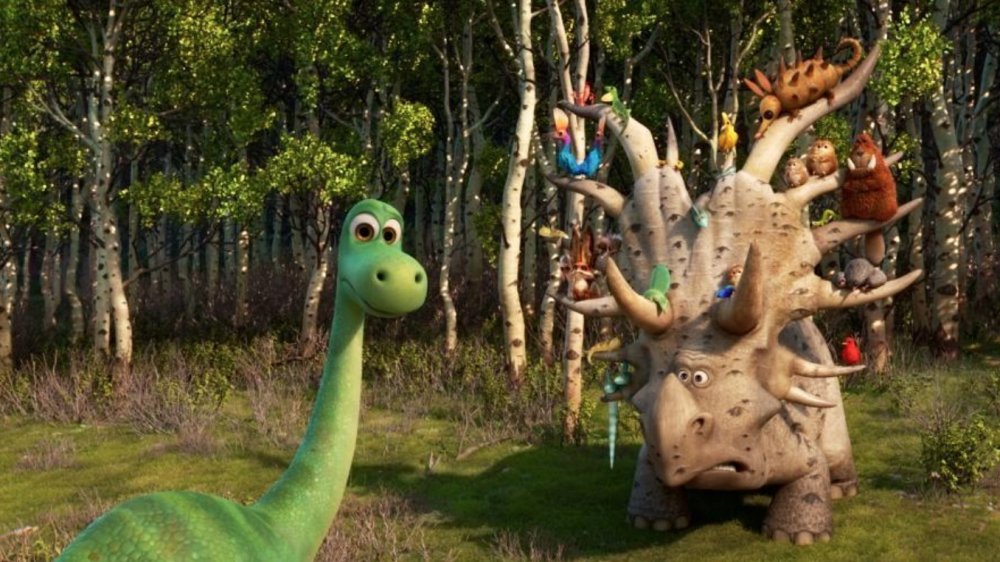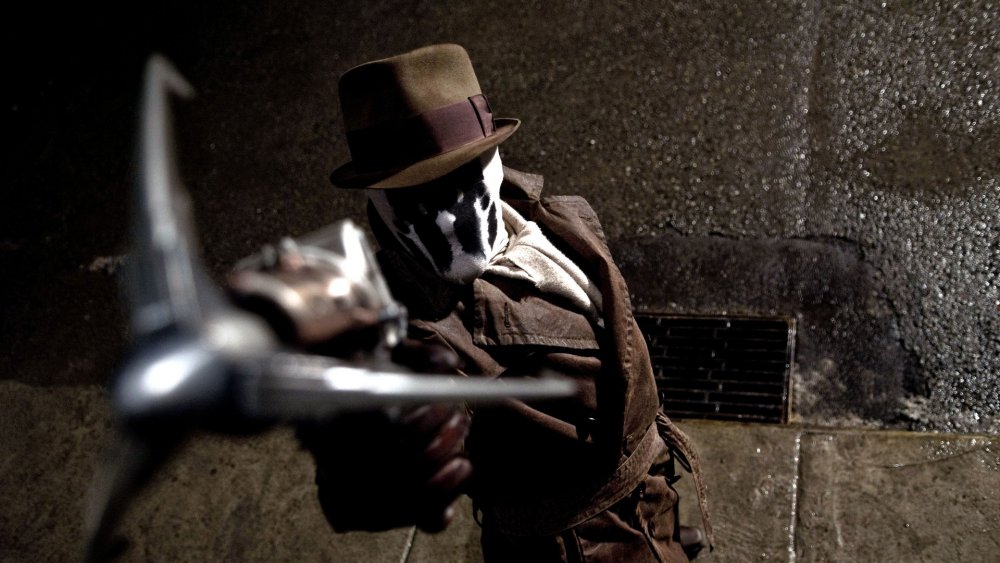Movies That Are Way Better Than You Remember
Your memory can play tricks on you, especially when it comes to movies. You probably watched a lot of movies back in the day and remembered them being good, only to rewatch them years later and think, "Really? That was terrible!" Frankly, there's a huge chunk of Oscar Best Picture winners and "all-time classics" that fall into this category. Turns out it works in reverse, too. There are so many movies you saw years ago that you probably think are terrible, but after a rewatch, you realize they're much better than you remember.
And you're not alone. Years and even decades later, many critics are changing their tune on so-called "bad" movies. We once believed they were terrible. Now we know better. The movies on this list certainly qualify. Sure, many of these films aren't "good" in the traditional sense, but they all have qualities that merit a rewatch and maybe even a reappraisal. Some fall in the category of "so bad it's good," some were simply victims of bad timing, while others had their hearts in the right place but made a few too many mistakes along the way. We can still appreciate them and frankly, we'd rather rewatch any of these than many insomnia-curing "prestige pictures" from ages past. This list includes Razzie Award winners, Michael Bay's bombastic best, and creative misfires from otherwise brilliant filmmakers. Which so-called "bad" films deserve a rewatch? Here are some movies that are way better than you remember!
In space, no one can hear you complain
In space, no one can hear you scream at the screen — which is a good thing, because irate fans hated Alien 3. After Ridley Scott directed one of the greatest sci-fi films ever, Alien, and James Cameron made one of the greatest action films ever, Aliens, David Fincher's follow-up was ... well, not the greatest anything. Critics and audiences despised Alien 3, though the film's box office wasn't that bad, earning $54 million domestically and $158 million worldwide. Sure, it was the lowest of the series proper, but it was still profitable on a $55 million budget.
Of course, Alien 3 committed arguably the worst of all cinematic sins — it was disappointing. Following two of the greatest genre films ever is tough, especially when your movie is the cinematic swan song for one of the most beloved movie characters ever, Sigourney Weaver's Ellen Ripley (who came back as a clone four years later). It was a big ask, and Fox handed the reins to first-time feature film director David Fincher. Alien 3 was an inauspicious debut for the future director of Seven, Fight Club, and Zodiac, who at 27 years old basically told the head of Fox to fire him and has since disavowed the film.
However, Alien 3 is actually pretty good. In addition to featuring one of the most iconic shots of the entire series (pictured), the film has a great otherworldly vibe, focuses on a pretty cool prison planet, and has Weaver giving an incredible performance. While it suffered in 1992 because it followed two masterpieces, its reputation has improved after two decades of disappointments and duds. Alien 3 isn't Fincher's best, but it does show signs of his remarkable creative vision.
Thanks to Dwayne Johnson, Baywatch is worth a watch
Baywatch was inexplicably "the most watched TV show in the world," with a weekly audience of 1.1 billion people in 148 countries. Some have even suggested that Baywatch helped change the world, as its all-American vision of bronzed bros and blonde bombshells saving the day without messing up their hair was imported around the globe. Despite being a pretty terrible TV show, there's no denying that Baywatch was super popular and influential. With cultural cachet like that, it was only natural that Hollywood would want to make a movie based on the prized TV property, especially during this IP-hungry era. So muscle-bound movie stars Dwayne "the Rock" Johnson and Zac Efron donned the board shorts and brought the slo-mo run to a whole new generation.
Unfortunately, the whole new generation wasn't interested. Baywatch earned a disastrous 17 percent Tomatometer score, and not even the Rock's 180 million Instagram followers could save it at the box office. Baywatch earned $58 million domestically and $177 million worldwide, a mediocre total saved only by its modest $69 million price tag. So does it belong on this list about underappreciated movies? Well, while Baywatch isn't "good" per se, it's still a cheeky send-up of its genre, featuring super charismatic stars. The BBC even suggested it's "brilliant." That's a stretch, but it definitely deserved its 2017 Razzie for "So Rotten You Loved It." Naturally, the Rock accepted the prize gracefully.
Batman v Superman deserves Justice
Superhero movie fans had dreamed of seeing Batman and Superman share the big screen since basically forever. Granted, we didn't want to see them try to kill each other while Jesse Eisenberg's evil Mark Zuckerbe ... er, Lex Luthor waxed poetic about Grandma's peach tea, but hey, we'll take what we can get.
However, there was trouble afoot when Batman v Superman: Dawn of Justice moved its release date to avoid Captain America: Civil War, shocking fans who never thought they'd see the day when the Dark Knight and the Man of Steel tucked tail to avoid Captain American and Iron Man. And when it came out, BvS shocked critics and fans alike, but it still opened to $166 million — the highest opening in the DCEU — solely thanks to Batman and Superman's popularity. But the movie's grim tone and convoluted plot totally missed the mark on what made these characters so beloved, and it quickly lost favor with moviegoers, underperforming with $330 million domestically and $873 million worldwide. BvS didn't win the 2017 Razzie Award, but Ben Affleck and Henry Cavill took home the trophy for "Worst Screen Combo."
While BvS' reputation is horrible, it's better than you remember. BvS' unabashedly bonkers storytelling stands out when compared to MCU's standard "house style", which provides consistent quality but little variation, and Justice League, which was neutered into focus group-approved blandness. Basically, Warner Bros. gave Snyder $263 million to bring his creative, insane vision to life, resulting in one of the most bizarre, but never boring, blockbusters of all time.
Pearl Harbor is way better than you remember
Making a movie about Pearl Harbor — one of the most monumental events in human history — demands a filmmaker with grace, maturity, and skill. So naturally, the job went to Michael Bay. Bay's Armageddon came in second in 1998 to Steven Spielberg's Saving Private Ryan (one of the greatest war movies ever), so Bay figured he'd mix the two and throw in a touch of Titanic too. But Pearl Harbor wages war against World War II, recreating this pivotal historical event not in the hyperrealistic, documentary style of Spielberg but the hyperkinetic, video game style of, well, Michael Bay. You don't feel like you're in Pearl Harbor so much as in the middle of a video game about Pearl Harbor.
In other words, it's a lot, and while critics tried to sink it with a 24 percent Tomatometer score, audiences saluted it with a $198 million domestic, $449 million worldwide take, Bay's best behind the Transformers series and Armageddon. Nevertheless, its critical reputation never really recovered, but while Pearl Harbor isn't great, it deserves a rewatch (if you have three hours to kill). There have been great war films and bad war films, but there have been few that care so little about asking the cliche "big questions" and care so much about blowing stuff up real good. Pearl Harbor is like watching a man-child get to play with $140 million worth fireworks on the 4th of July. It's a nonsensical series of colorful explosions and paper-thin patriotism, but man, is it entertaining!
The 1998 Godzilla is fine ... just not a Godzilla movie
You could argue that Batman & Robin, Godzilla, and Wild Wild West created internet movie culture. This art form was born to bash these movies back in the late 1990s, but only one of them is better than you remember.
First, let's get one thing out of the way — Godzilla is not a Godzilla movie. That's not a typo. G-fans immediately condemned the character as GINO (Godzilla In Name Only), and Toho Studios even had the real Godzilla mop the floor with "Zilla" in 46-seconds flat in Godzilla: Final Wars. History has labeled Godzilla a flop, largely due to the film not living up to its insane hype. However, Godzilla had the biggest opening weekend of 1998, despite opening on a Wednesday and critics absolutely nuking it with a 16 percent Tomatometer score.
But it wasn't beauty that killed the beast, it was word-of-mouth, as Godzilla's short legs only managed $136 million domestic, $379 million worldwide gross. Moviegoers chief complaint? It wasn't Godzilla. Godzilla doesn't hide behind buildings, he knocks them down. Godzilla doesn't run from the military, he blows them up. Godzilla doesn't lay eggs, he ... well, we're not so sure. But while Godzilla isn't Godzilla, it's still a perfectly acceptable summer popcorn movie about a giant nuclear sea iguana who just wants to lay his/her eggs in peace. While we'd much rather watch the OG Big G, the '98 Godzilla is still a mostly entertaining entry in the kaiju canon. Just call it something else.
Armageddon is Die Hard on an asteroid!
Seven Samurai. The Seventh Seal. The Bicycle Thief. Armageddon. Michael Bay's 1998 Golden Raspberry-nominated blockbuster about a group of ribald roughnecks saving the human race from asteroid annihilation is easily the most controversial film in the Criterion Collection. Critics vaporized it with a 38 percent Tomatometer score and even Michael Bay has apologized for it. However, the Criterion Collection has stood its ground, even if the ground is shaky, and we believe the folks at Criterion are absolutely right. Armageddon is much better than you remember.
Seriously, Armageddon's entry into the hallowed halls of the Criterion Collection kinda' makes sense. It's not one of the greatest films ever, not even in the same solar system, but it is the purest example of one of our most original filmmaker's singular creative vision — a vision which, like it or not, has had a major, meteor-like impact on popular culture. Put another way, Armageddon is the most "Michael Bay-ish" of Michael Bay's movies. If you're looking for the childlike wonder of Steven Spielberg, the romantic imagination of James Cameron, or the epic majesty of Peter Jackson, look elsewhere. This is Bay doing what Bay does best and entertaining us for two-and-a-half hours. Just call it Michael Bay Presents: Bruce Willis vs. Evil Space Rock or Die Hard on an Asteroid. You'll see it's so much better than you remember.
The Island of Dr. Moreau is wonderfully weird
The Island of Dr. Moreau is a movie about a scientist who plays God, but the filmmakers were tempting fate when they put it together. Take two of the most talented but tempestuous actors of their respective generations — Marlon Brando and Val Kilmer — and send them to an island to make a $40 million sci-fi horror hybrid based on a 100-year-old book about half-human/animal monstrosities. Yeah, what could go wrong? (Sarcasm.)
The Island of Dr. Moreau was always a high-risk/high-reward situation, and unfortunately for New Line Cinema, the gamble didn't pay off. Critics howled, giving the film a foul 24 percent Tomatometer ranking, and audiences followed suit, sinking the picture with a $27 million domestic and $49 million worldwide gross. Brando even "won" the Razzie Award for Worst Supporting Actor. The Island of Dr. Moreau is a morbid mess, but it's nevertheless an interesting case study in madness, both behind-the-scenes and on the screen.
It's always fascinating to watch such incredibly talented people (besides Brando and Kilmer, the movie was directed by acclaimed filmmaker John Frankenheimer) make something so outlandish and bizarre. While some films are the result of a singular creative vision, The Island of Dr. Moreau is a chaotic quilt of competing creative egos who couldn't decide if they wanted to make a good movie or sabotage it, trolling the audience and each other. The result? Not sure, but we can't look away.
Waterworld wasn't Cosnter's folly, and it's not as bad as you remember
Waterworld is pretty much synonymous with "box office bomb." It took the ignominious title from Gates of Heaven and Ishtar (Waterworld was even dubbed "Kevin's Gate" and "Fishtar" before it was released) despite not being nearly as bad or as big a bomb as history remembers. The bad buzz from Waterworld's trouble-plagued shoot, combined with poor critical reviews, killed whatever chances it had of scoring big with audiences. Waterworld underwhelmed with $88 million domestic and $264 million worldwide, not bad for an original sci-fi, but thanks to its absurd $175 million price tag, the movie needed to be rescued from drowning with home video and cable sales.
A high-concept, apocalyptic, sci-fi fantasy like Waterworld needed all of the pieces in place to work, and unfortunately for the film, none of them did. The result is an ambitious, creative misfire with a critical and financial reputation much worse than it deserves. Years after its release, critics and fans are rediscovering the film, and finally acknowledging it wasn't really a box office bomb and not a bad movie either. Thanks to the nerve-racking recession of the polar ice caps, it might even be scarily prescient as well. Waterworld is much better than you remember, and it should be taken off the top of the list of "Worst Kevin Costner Bombs" so more attention can be paid to the truly atrocious mega-bomb The Postman.
Last Action Hero needs its reputation rescued at last
Arnold Schwarzenegger reached his peak in 1991 with his biggest hit — and the highest-grossing movie of the year — Terminator 2: Judgment Day. Going forward, there was only one character big enough for Arnold to play — himself. So, Schwarzenegger reunited with his Predator director John McTiernan in the pseudo-spoof Last Action Hero, in which a lonely, 11-year old Arnold fan is transported into the latest movie starring the One-Man Austrian Army. It was a clever story, one that allowed Schwarzenegger to make fun of his big screen persona, while still getting to be a total badass who killed villains in creative ways while dropping corny one liners. There's also an expert Stallone troll job.
If you were like the pre-teen boy in the film, Last Action Hero was the perfect introduction to Schwarzenegger. Chances are, Last Action Hero was the first Arnold movie a lot of millennial's moms and dads allowed them to see thanks to its PG-13 rating. Alas, cranky old critics couldn't stand it, and while it earned $50 million domestically and $137 million worldwide (not bad for a non-sequel), its budget was an absurd $85 million. Plus, it had the bad timing of opening one week before Jurassic Park. Last Action Hero wasn't a hit with critics or Arnie's R-Rated fans, and it even earned a Razzie nomination for Worst Picture, but for the 11-year in all of us, it's still pretty awesome.
Rocky IV won the Cold War
There are franchises like the MCU and Star Wars that must maintain a brand tone, lest they enrage fans. Then there's Rocky, a franchise whose tone fluctuated based on whatever Sylvester Stallone felt at the time. Rocky Balboa started as an over-the-hill, "coulda' been a contender" boxer going the distance, who became the champion, who then became an Olympic-caliber celebrity athlete pushing 40 who needed to get his "eye of the tiger" back to beat Mr. T. By 1985, there was only one thing left for Rocky to do — win the Cold War.
In Rocky IV, the Italian Stallion was no longer a meat-pounding, underdog pugilist but a star-spangled superhero sent to take down the Soviet Union's Frankenstein monster, Ivan Drago. Rocky IV's almost not even a Rocky movie, especially without Bill Conti's iconic "Gonna Fly Now." In fact, it belongs in the same category as The Karate Kid and The Breakfast Club as one of the "Most '80s Movies Ever." Play "take a drink" during every inspirational montage, and you'll be wasted 40 minutes in. Sure, Critics KO'd it with savage reviews, while the Razzies nominated it for "Worst Picture." But who cares? Audiences loved it, with a $127 million domestic and $300 million worldwide take, and it basically feels like an over the top superhero movie, with two musclebound titans clobbering one another over and over again. Rocky IV isn't a movie, it's a time capsule, and a darn awesome one at that!
1941 is way better than most Spielberg fans remember
Jaws swam into movie history in 1975, establishing the summer movie season. Close Encounters of the Third Kind continued the trend in 1977, proving that Steven Spielberg wasn't so much a movie director but a kid King Midas with a movie camera. If Spielberg could turn the historically horrible Jaws production into a history-making hit and then turn a movie about aliens and an absent father into a blockbuster, he could do anything, right?
Well, 1941 proved Spielberg was mortal. Out of Spielberg's early films, 1941 was the most well-positioned to succeed, with a big budget, no studio interference, John Belushi and Dan Aykroyd at the height of their SNL stardom, and a script by future Back to the Future helmer Robert Zemeckis. What could go wrong? Nothing ... except the audience didn't care. Spielberg was given creative carte blanche on 1941, but the film lacked the spark of his earlier films. Critics condemned the would-be screwball comedy, and moviegoers gave it $31 million domestically and $92 million worldwide. But 1941 made back its $35 million budget, so it wasn't the bomb history remembers, and honestly, it's not that bad either. It's one of Spielberg's weakest efforts, sure, but we still admire its imagination. Ironically, 1941 would've been better if Spielberg had less power, as it's overstuffed with too many ideas that a more mature filmmaker would've nixed. But thanks to 1941, Spielberg became that more mature filmmaker.
Mars Attacks may actually be brilliant
Mars Attacks is a movie not meant for this world because it deserved better. Warner Brothers gave Tim Burton an $80 million budget and an all-star cast (Jack Nicholson, Glenn Close, Pierce Brosnan, Danny DeVito, Annette Bening, Sarah Jessica Parker, we could go on ...) to make a spoof of the 1950s sci-fi schlock cinema Burton adored as a child. Critics were underwhelmed, and audiences were even less impressed, as Mars Attacks crash-landed with $37 million domestic and $101 million worldwide, making it probably Burton's biggest bomb.
What happened? The Christmas season release date was a failed attempt at counter-programming, plus it also had the misfortune of opening six months after 1996's biggest hit, Independence Day. Just one year later, another alien-invasion comedy, Men In Black, became the biggest hit of the summer, though it had the advantage of ID4 star Will Smith. However, while ID4 and MIB took the extraterrestrial subject matter somewhat seriously, Mars Attacks made fun of it. So really, Mars Attacks just got buried between two much bigger, more popular alien movies. But to a certain viewer (those of us with a twisted sense of humor), Mars Attacks is actually kind of brilliant, with its madcap humor and mischievous (and slightly upsetting) sense of fun. Wherever you think Mars Attacks ranks in sci-fi canon, it certainly deserves kudos for being the only alien invasion film clever enough to not kill the aliens with nukes, bombs, or bacteria but Slim Whitman records.
The Good Dinosaur disappoints but deserves a rewatch
"Pixar's first bomb" isn't the reputation you want your movie to have, yet that's how history will remember The Good Dinosaur. The film seemed well-positioned to succeed, as it opened during the family friendly Thanksgiving holiday frame, just a few months after Jurassic World brought dinosaurs back to the silver screen in a big way and Inside Out became the studio's biggest non-sequel hit. What could possibly go wrong?
For starters, its rock solid 76 percent Tomatometer score would be great for any other studio ... except Pixar, which usually makes movies that land in the 90 percent ranking. Anything lower signaled trouble. Its $39 million opening was disappointing, but it could've spelled a leggy run through the holidays. However, it got creamed by the popular franchise finale The Hunger Games: Mockingjay — Part 2 in its second weekend and never recovered. With its apatosaurus-sized $187.5 million budget, The Good Dinosaur's $123 million domestic and $333 million worldwide just wasn't going to cut it.
While most Pixar movies are hysterical comedies that tell down-to-earth, relatable stories (albeit about toys, emotions and superheroes) meant for all ages, The Good Dinosaur was very much a children's movie, with some suggesting it was derivative of better films. The Good Dinosaur's premise was clever ("what if dinosaurs survived?"), but the film didn't live up to this potential. However, The Good Dinosaur is still a sweet, if simple, fable about friendship and family, whose bad reputation should go extinct.
You should re-watch Watchmen
Who watches the Watchmen? Not many people apparently. After Zack Snyder spent a modest $60 million sum on 300 and paid Warner Brothers back with a $454 million worldwide gross, the studio confidently cut him a $130 million check to film their most challenging property: Watchmen. Ever since it changed the face of comics in 1986, many filmmakers had yearned to bring Alan Moore and Dave Gibbons' masterpiece to the big screen, only to declare the dense tome "unfilmable." Watchmen's journey through three decades of development hell is like walking through a graveyard of great directors: Terry Gilliam, Darren Aronofsky, and Paul Greengrass. Given that critically acclaimed crew, it's surprising the one guy who finally figured Watchmen out was Zack Snyder. And despite what the history books say, he actually did a pretty good job.
Watchmen earned respectable Rotten Tomatoes scores from critics and fans, but it bombed at the box office, earning $107 million domestically and $186 million worldwide, a steep 60 percent drop from the less prestigious property 300, while costing twice as much. Nobody likes a loser, and Watchmen's bad box office has earned it unfair criticism, with some fans even saying it hewed too closely to the beloved source material. While Watchmen is nowhere near as good as the groundbreaking graphic novel (how could it be?), it's still a pretty solid adaptation, with some great superhero costumes, impressive fight scenes, and pitch-perfect performances from the likes of Jeffrey Dean Morgan and Billy Crudup. In the wake of HBO's critically acclaimed Watchmen TV sequel, Snyder's film (as well as his Director's Cut and Ultimate Cut) has received a much-deserved reappraisal.
